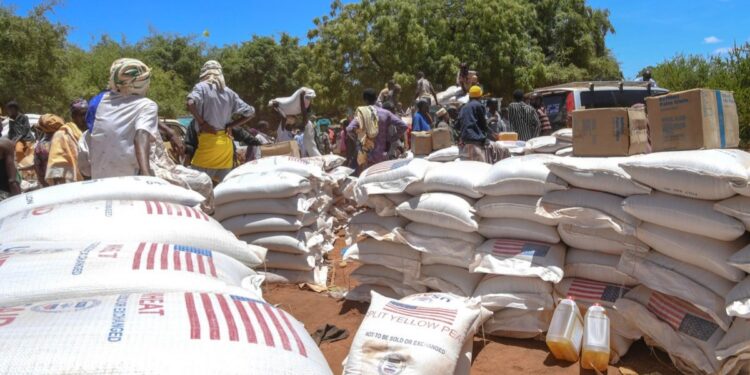The United Nations World Food Programme (WFP) has accelerated efforts to roll out the enhanced safeguards and controls that will ensure humanitarian food assistance reaches targeted, vulnerable people across Ethiopia.
This follows a joint statement by Ethiopia’s Ministry of Foreign Affairs and USAID recently, announcing their commitment to addressing deeply concerning revelations of food aid diversion.
“Food diversion is absolutely unacceptable and we welcome the Government of Ethiopia’s commitment to investigate and hold accountable those responsible,” said WFP Executive Director Cindy McCain.
“Our first concern is the millions of hungry people who depend on our support, and our teams will work tirelessly with all partners to resume our operations as soon as we can ensure that food reaches the people who need it the most.”
While we will temporarily halt food aid assistance in Ethiopia, nutrition assistance to children, pregnant and breastfeeding women, school meals programs, and activities for building the resilience of farmers and pastoralists will continue uninterrupted.

A comprehensive action plan to strengthen safeguards and controls across the country will include WFP and NGO partners working more directly with communities and using technology to select those most in need and verify their identity in real-time.
WFP is also reinforcing food tracking all the way to beneficiary families and strengthening the monitoring and reporting of violations by partners and the misuse of food aid.
WFP is working closely with its UN and humanitarian partners and local stakeholders to reform the way assistance is delivered across Ethiopia, according to the Agency.

And in all high-risk operational contexts where we work. WFP takes this issue very seriously and will take every necessary step to ensure that critical food assistance reaches those who need it most.
“As humanitarians, we need to be able to reach the most vulnerable women, men, and children unimpeded and without diversion,” said McCain. “We have to work together to learn from and prevent it from happening again in the future.”
This year, more than 20 million people in Ethiopia urgently need humanitarian food assistance, as the long-lasting effects of conflict and drought continue.











